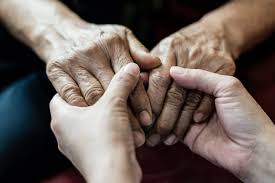November honors those who provide end-of-life care with National Hospice and Palliative Care Month. Many nurses in this specialty say the work is emotionally and physically rigorous at times, but an incredibly gratifying area of nursing.
National Hospice and Palliative Care Month focuses attention on the caregivers who are able to help patients and their loved ones navigate the end of life with dignity, companionship, and as much comfort as possible. These nurses can practice in various settings–a healthcare facility, nursing home, or private home.
Nurses interested in this career path will find information and resources through Advancing Expert Care, the combined partnership of the Hospice and Palliative Nurses Association, the Hospice and Palliative Credentialing Center and the Hospice and Palliative Nurses Foundation.
The pace of the COIVD-19 pandemic has rapidly changed the caseload and the pace of hospice nursing. Because of their essential role in end-of-life care, hospice nurses work closely with patients to incorporate treatment of the whole patient. That means they might be prescribing medication, caring for various physical symptoms, and also acting as a knowledgeable source of medical information and comfort for patients and their loved ones. They assemble a care team that could include spiritual or religious members and will work with the patient’s care giving team to ensure that a patient is never alone in the final days and hours.
According to the National Association for Home Care and Hospice (NAHC), 90 percent of Americans want to age in place at home, making the role of a hospice nurse essential for end-of-life care for these patients. For those who wish to age in place, healthcare delivery is especially important. Those who have a disability, are elderly, or have chronic health conditions will depend on home care workers and hospice and palliative care nurses as they come to the end of their lives. NAHC offers nurses opportunities to connect with legislators and advocate for home care and hospice care to remain at the front of patient rights and issues.
If you’re interested in this career, the need for nurses is high and increasing for many reasons. In addition to the impact of the pandemic, members of the large baby boomer generation are getting older, managing chronic health conditions, and often want to age in place. All of these factor are trickling down to a specialty hospice and palliative care nursing workforce that needs more nurses. The roles available in the field are broad. Nurses may have varying levels of direct patient care every day or they may have a managerial role where they are in charge of overseeing the network of care providers for a patient in hospice care.
Patients and loved ones look to hospice nurses to provide a calm and steady presence, but that doesn’t mean they aren’t supposed to cry when a patient dies. Nurses in these roles are deeply compassionate and in tune with their patients. But if you’re considering this career path, you will need to be comfortable with the process of dying and be able to cope with constant loss of patients. The benefits for helping patients navigate the end of life are deep and rewarding.
- WOC Nurses Week Highlights Specialty - April 16, 2024
- Honoring Radiology Nurses Day on April 12 - April 12, 2024
- Travel Offers New Career Possibilities - April 8, 2024



